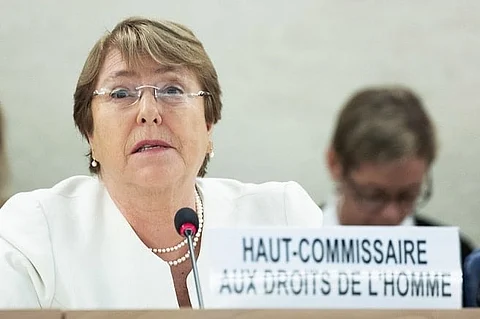
- Home
- Live Blog
- Breaking News
- Top Headlines
- Cities
- NE News
- Sentinel Media
- Sports
- Education
- Jobs

United Nations: India has expressed regret that the Kashmir issue is being raised at the UN Human Rights Council (HRC) after mentions of it by Michelle Bachelet, the new UN Human Rights High Commissioner, and by Pakistan at its current session. “Terrorism is the biggest scourge and greatest violator of human rights and we hope that you will address it more emphatically in the coming years,” Rajiv K. Chander, India’s Permanent Representative to the UN in Geneva, told Bachelet on Tuesday at the HRC meeting in Geneva.
He told the HRC, “We regret that reference has been made to the Indian state of Jammu and Kashmir. Our views on the matter have been made abundantly clear in the Council.” It is important that “human rights issues are handled constructively” and with regard to national sovereignty and territorial integrity in a transparent and credible manner, he added.
In an apparent reference to the Supreme Court striking down the British colonial law criminalising same-sex relations as an example of the capability of Indian legal bodies to deal with human rights issues, Chander said, “From recent developments it is evident our institutions are responsive and capable of meeting the aspirations and needs of the vast and thriving milieu of people.” On Monday, in her first address to the HRC, Bachelet had said the recent human rights report on Kashmir had not been followed up and emphasised that her office would continue monitoring and reporting on the situation there.
The strongly-worded report released by her predecessor, Zeid Ra’ad Al Hussein in June, outlined what it said were human rights abuses on both sides of the line of control and called for an international commission to investigate the human rights situation. He had also repeatedly asked India to allow human rights monitors to visit Kashmir, which New Delhi has refused asserting that happenings in Kashmir were its internal affairs and there could be no external intervention. Bachelet said that there has not been “even open and serious discussions on how the grave issues raised (in the report) could be addressed” she said. (IANS)